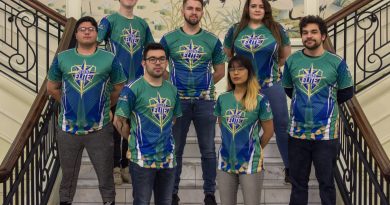Running for glory: Eric Liddell’s story
Glory for one’s country. Glory for the individual. Glory for the sport.
We watch the events on television, enthralled by the skill and abilities of those representing their countries, and cheering on the one representing our own. We give glory and feel theirs.
There is a story of one Olympian, or one individual who excelled in his sport, who did not take glory for himself but rather ensured the Lord was the one being glorified, through sport and life.
This is the story of Eric Liddell.
Part of his story became famous from the movie Chariots of Fire. But there is much more to this narrative that needs to be known.
Eric Liddell was born in 1902 in Tientsin (which is now Tianjin), China, where his parents were missionaries. He was sent to a London boarding school for sons of missionaries, which he attended for twelve years before enrolling in Edinburgh University. While there he did short distance running, rugby, and cricket, but he excelled at running.
In 1923, he broke the British record for the 100 m sprint, and became a favorite for the 1924 Olympics.
In the Paris Olympics, Liddell’s race, the 100 m, was scheduled for a Sunday. One of Liddell’s personal convictions was to not run on the Sabbath day. While he loved running, for him Sunday was the Lord’s day, and he would not be given glory on His day. Because of this conviction, Liddell withdrew from the race. Instead he focused on the 400 m, a race longer than his normal sprints. Despite barely practicing for this race, he won, taking the gold in both this and the 200 m. Before he ran the 400 m, Liddell was handed a note by the U.S. masseur, which had the words from 1 Samuel 2:30, “Those who honor me I will honor.”
A year later, in 1925, Liddell returned to China as a missionary. He worked as a science and sports teacher for the first twelve years, teaching rich Chinese children who could potentially influence the country later on for Christ. After that, he became an ordained minister.
During this time he married Canadian missionary Florence Mackenzie and had three daughters with her.
From medals to chains
In 1941, during World War II, the Japanese army began closing in on China. The British government advised them to leave. Liddell’s wife and daughters left, but Liddell stayed behind and served in a missions station in rural China, giving medical attention and food to those who need it.
In 1943, the Japanese army finally closed in on the station, and Liddell was placed in an internment camp. While most of the prisoners hoarded their resources, Liddell intentionally shared his goods and went out to help those in need in the camp. He held Bible studies and aided the elderly. When the richer prisoners were able to bribe the guards for food, he was able to convince them to share with others.
From being in the camp, he became malnourished and very ill. Winston Churchill was able to secure him a way out through a prisoner exchange, but Liddell refused, choosing instead to allow a pregnant woman to take his place, saving both her and the child’s life.
Liddell never complained about his illness to relatives, but in reality he was quickly declining. Unknown to all, including Liddell, he had a brain tumor. He died in 1945, only a few months before liberation.
Liddell lived a life of service in humble submission. As a runner, he intentionally set aside time for the Lord. He used the boundary of the Sabbath to ensure his heart was always looking to God’s glory, his running not becoming an idol. In China, he lived a life of full service. As a teacher, as a minister, as a prisoner – his focus was on others and the Lord’s mission. He stayed true to his calling, which cost him his freedom and ultimately his life. But his life is an example of Paul’s words “to live is Christ, to die is gain” (Philippians 1:21).
During this season of Olympic glory, remember the true glory we are working for: the glory of the Lord. Eric Liddell’s life was representative of his servant heart, one everyone should emulate.
Danielle Crowley is a Staff Writer for The Daily Runner.




